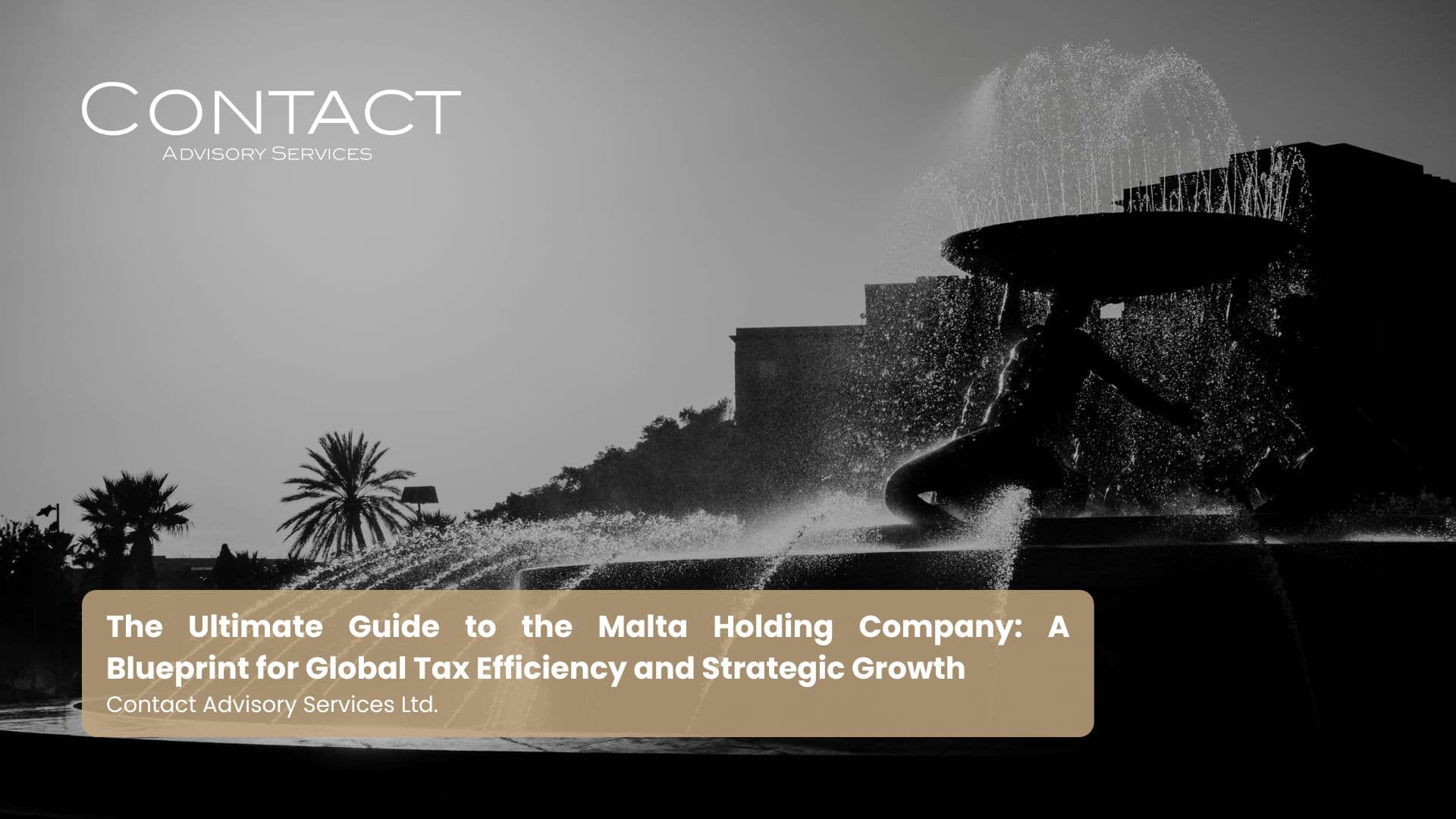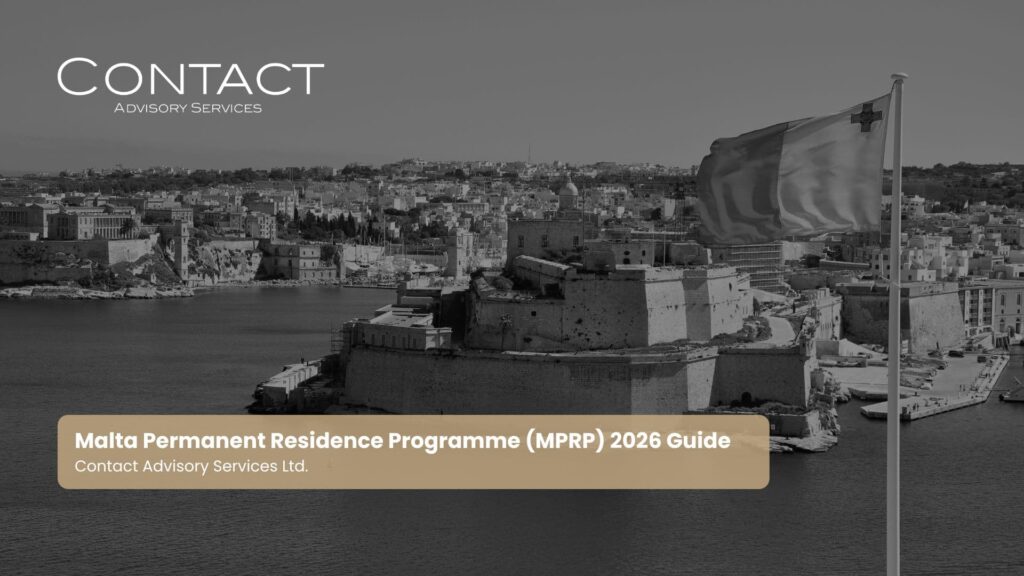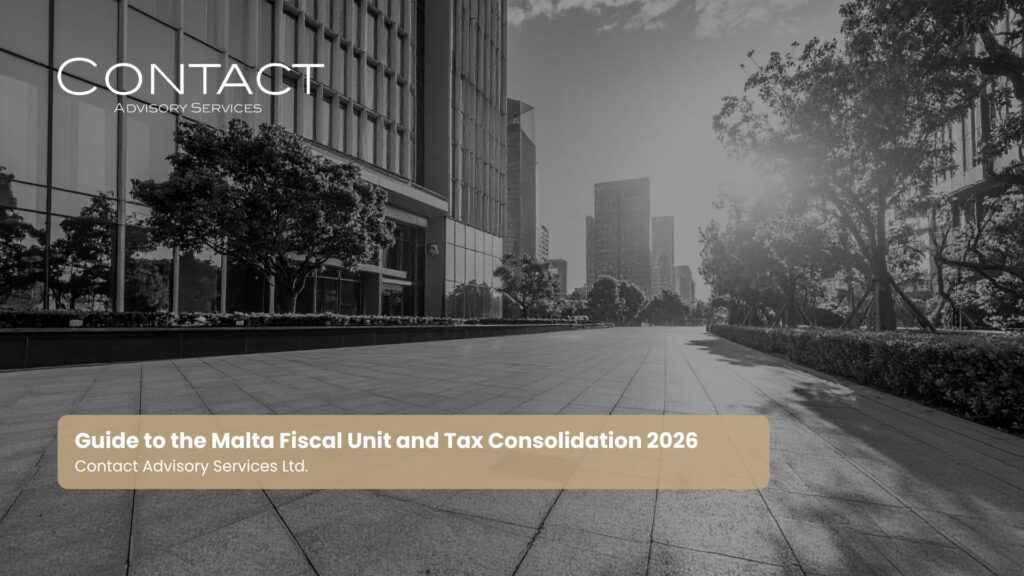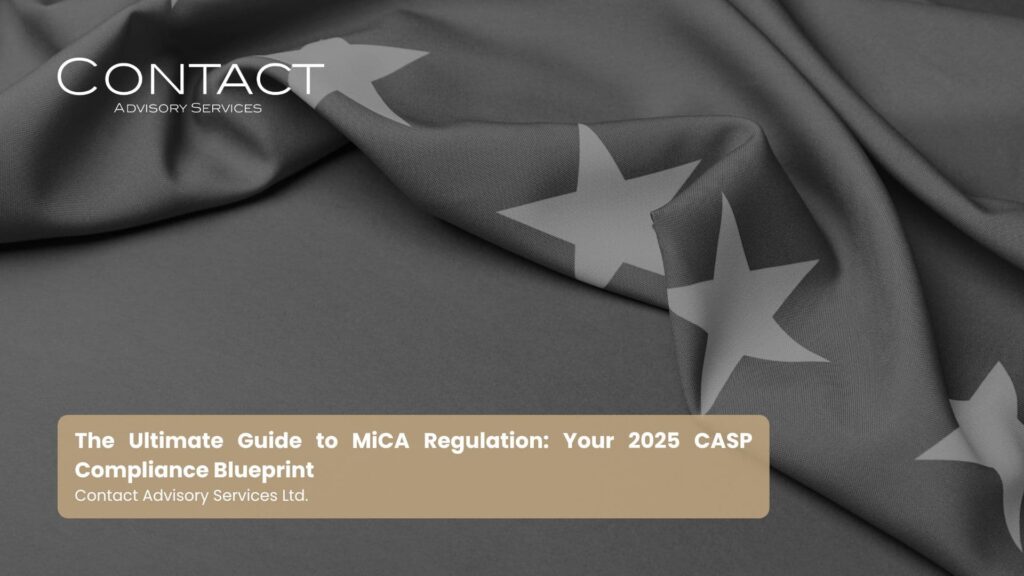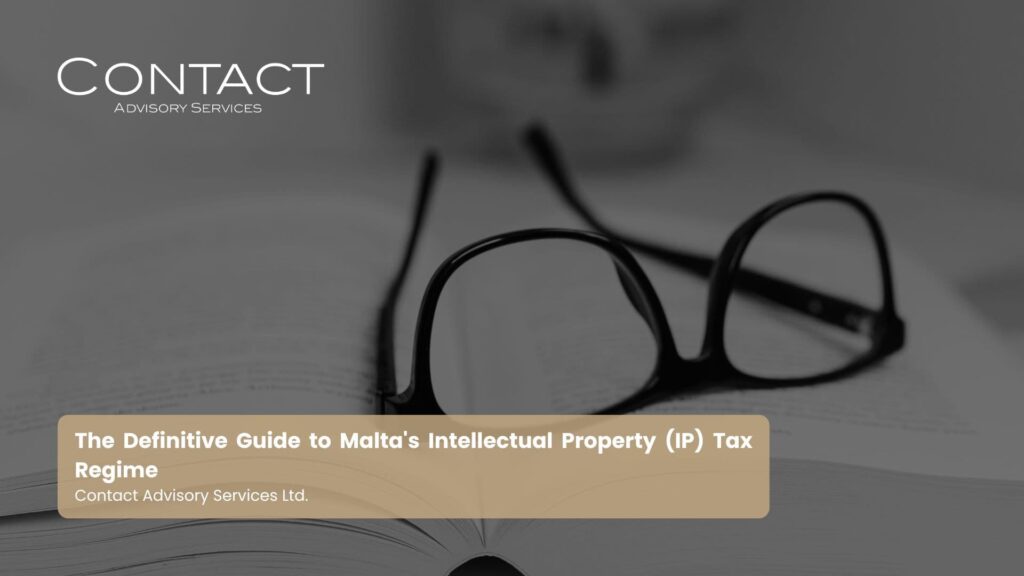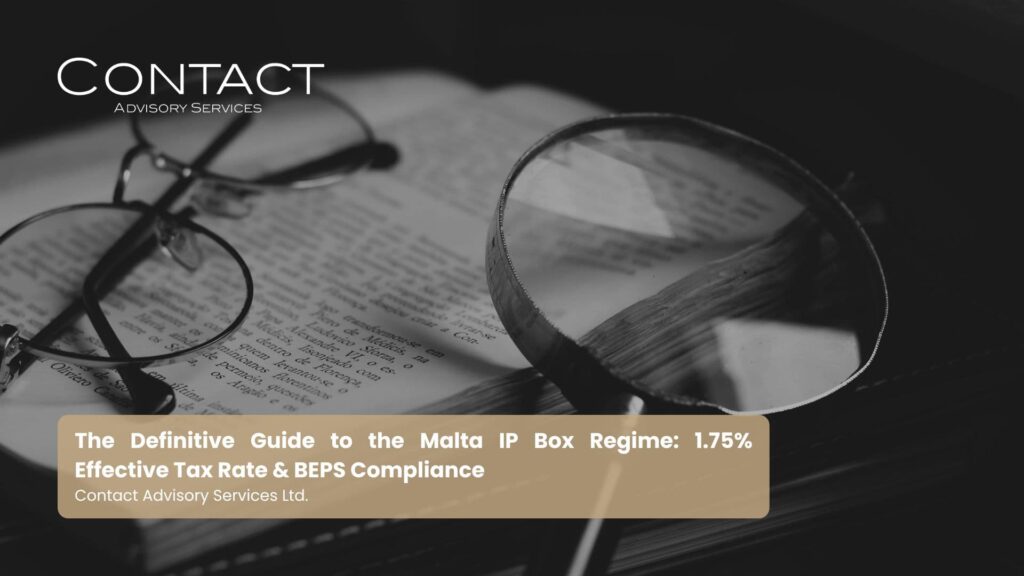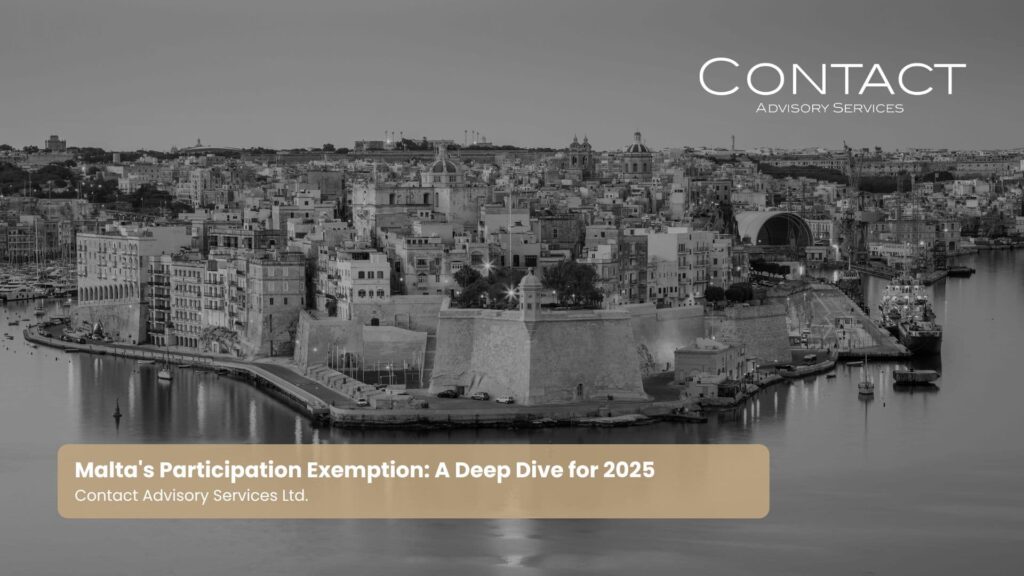In today’s hyper-connected global economy, international entrepreneurs, multinational corporations, and astute investors face a labyrinth of complex challenges. You are tasked with navigating a discordant patchwork of international tax laws, mitigating the constant threat of double taxation that erodes hard-earned profits, and establishing a corporate structure in a jurisdiction that offers not just efficiency, but also unquestionable reputation and stability. The search for a solution that balances aggressive tax optimization with robust legal compliance and operational substance can be a daunting, high-stakes endeavor.
This is where Malta emerges not merely as an option, but as a premier strategic solution. This guide directly addresses the core challenges of international corporate structuring by providing an exhaustive, deep-dive into one of the world’s most sophisticated and advantageous corporate vehicles: the Malta Holding Company.
As a full European Union member state, Malta has deliberately and meticulously engineered a pro-business legal and fiscal framework that has become a global benchmark for international tax planning. The objective is not to operate from a loosely regulated “tax haven,” but to leverage a “tax-efficient” and fully compliant ecosystem designed for legitimate, substantive global business. In this definitive guide, we, the experts at Contact Advisory Services Ltd., an MFSA (Malta Financial Services Authority) Authorised Company Services Provider, will serve as your trusted navigators. We will dissect the unparalleled tax advantages, explore the critical non-tax strategic benefits, and provide a clear, actionable roadmap for the establishment, management, and long-term compliance of a Maltese holding company.
By the end of this comprehensive analysis, you will possess a profound understanding not just of what a Malta Holding Company is, but why it could be the most pivotal and powerful component of your international corporate architecture, unlocking a new level of financial efficiency and strategic freedom for your global enterprise.
What Exactly Is a Malta Holding Company?
A Malta Holding Company is a standard Maltese limited liability company (Ltd.) whose primary corporate function is to own and manage assets, most commonly shares and securities in other companies, known as subsidiaries. Unlike a trading company, which actively sells goods or services, a holding company’s purpose is to centralize the ownership, control, and administration of a group of companies, intellectual property, or other significant assets, deriving its income from passive sources.
At its core, a holding company in Malta is not a special legal entity but rather a standard Maltese company—typically a private limited liability company—that is utilized for a specific, strategic purpose. It acts as the parent or “umbrella” entity within a larger corporate group. Its activities are fundamentally passive in nature and revolve around the strategic management of its portfolio of assets.
The primary functions and income sources of a Malta Holding Company include:
- Acquiring and Holding Shares: Its main activity is owning equity in subsidiary companies, which can be located anywhere in the world.
- Receiving Dividends: A significant portion of its income comes from the dividends distributed by its profitable subsidiaries.
- Realizing Capital Gains: It profits from the strategic sale or disposal of its shares in subsidiaries or other assets when their value appreciates.
- Group Financing: It can act as a central treasury for the group, providing loans to its subsidiaries and earning interest income.
- Managing Intellectual Property: It can own valuable intellectual property (IP) such as patents, trademarks, and brand names, licensing this IP to operating companies in exchange for royalty payments.
Think of the Malta Holding Company as the strategic command center or the central nervous system of a corporate organism. It doesn’t engage in the day-to-day operational grind of its subsidiaries; instead, it provides oversight, governance, and financial consolidation. This centralized structure offers immense advantages in terms of streamlined corporate governance, enhanced asset protection, simplified succession planning, and, most critically, sophisticated tax optimization. By consolidating ownership under one well-regulated Maltese entity, corporations and investors can efficiently manage global cash flow and profits, leveraging Malta’s formidable fiscal incentives to fuel further growth and investment.
Why Is Malta Considered a Premier Jurisdiction for a Holding Company?
Malta is considered a premier jurisdiction for holding companies because it offers a powerful and unique synthesis of EU credibility, a full imputation tax system that can reduce the effective corporate tax rate to as low as 0%-5%, and a highly advantageous Participation Exemption regime on most foreign dividends and capital gains. This potent fiscal toolkit is built upon a foundation of political stability, a pro-business environment, an extensive network of over 80 double taxation treaties, and a robust yet flexible English-based legal framework.
Malta’s ascent as a top-tier holding company location is the result of decades of deliberate, strategic policy-making. The country’s legislators have masterfully balanced the creation of a fiercely competitive tax regime with unwavering adherence to the stringent compliance standards of the EU, OECD, and other international bodies. This has solidified its status as a “white-listed,” reputable financial center that offers unparalleled efficiency without sacrificing legitimacy. Global investors and corporations choose Malta because it delivers tangible financial benefits within a framework of substance, transparency, and long-term stability, steering well clear of the reputational risks associated with traditional offshore tax havens.
What Are the Key Tax Advantages of a Maltese Holding Company?
The key tax advantages of a Maltese Holding Company are anchored in its world-class Participation Exemption regime, which can fully exempt most foreign-sourced dividends and capital gains from tax. This is complemented by a unique full imputation tax system that provides shareholders with substantial tax refunds, often lowering the effective tax rate on other income to between 0% and 5%. Critically, Malta also imposes no withholding taxes on outbound dividends, interest, or royalties, and its position is fortified by a vast network of double tax treaties.
These pillars of the Maltese tax system are not isolated benefits; they work in concert to create one of the most efficient and powerful environments in the world for managing international profits. Let’s perform a deep-dive into each of these critical components.
- The Participation Exemption Regime: The Cornerstone of Efficiency
This is, without question, the most powerful feature of Malta’s holding company regime. It allows a Maltese company that holds shares in another company to be completely exempt from tax in Malta on the income and gains derived from that holding.
- 100% Exemption on Dividends: Dividends received from a qualifying “participating holding” are fully exempt from the 35% corporate tax in Malta. The income can be received and retained by the Maltese company with zero tax leakage.
- 100% Exemption on Capital Gains: Any capital gains realized from the disposal (sale) of a qualifying “participating holding” are also 100% exempt from tax in Malta. This makes Malta an ideal location for structuring exits from investments.
Defining a “Participating Holding”: The criteria are broad and flexible, designed to accommodate various investment structures. A shareholding in a subsidiary qualifies as a “participating holding” if the Maltese parent company meets at least one of the following six conditions:
- Equity Holding Threshold: The Maltese company holds a minimum of 5% of the equity shares in the subsidiary. This is the most common condition met.
- Acquisition Right: The Maltese company is an equity shareholder and possesses the option to acquire the entire balance of the subsidiary’s equity shares.
- Right of First Refusal: The Maltese company is an equity shareholder and is entitled to the right of first refusal if the other shareholders decide to sell, redeem, or cancel their shares.
- Board Representation: The Maltese company is an equity shareholder and has the right to appoint a director to the Board of the subsidiary.
- Significant Investment Value: The Maltese company holds an investment in the subsidiary with an acquisition value of at least €1,164,000 (or its equivalent in foreign currency), and this investment is held for an uninterrupted period of at least 183 days. This is particularly useful for investments in high-value companies where the equity percentage is below 5%.
- Strategic Holding: The shares are held for the furtherance of the Maltese company’s own business and are not held as trading stock (i.e., not for short-term speculative buying and selling).
Anti-Abuse Provisions: To ensure the regime is used legitimately and to comply with EU standards, the dividend income from a participating holding is only exempt if the subsidiary meets at least one of the following anti-abuse conditions:
a) It is resident or incorporated in an EU member state; or
b) It is subject to any foreign tax at a rate of at least 15%; or
c) It derives less than 50% of its total income from passive interest or royalties.
Even if none of these three conditions are met, the exemption can still apply if two further conditions are satisfied, namely that the holding is not a “portfolio investment” and the passive interest or royalties of the subsidiary have been subject to a foreign tax rate of at least 5%. This multi-layered approach makes the regime extremely robust and flexible in practice.
- The Full Imputation & Tax Refund System: A Unique Mechanism
This system is a masterstroke of tax engineering that sets Malta apart. While Malta has a standard corporate tax rate of 35% (which is EU-compliant), the system provides a mechanism for shareholders to receive a refund of the tax paid by the company once a dividend is distributed.
How It Works: When a Maltese company earns profits and pays the 35% tax, this tax payment is “imputed” to the shareholder. It’s essentially considered a pre-payment of the shareholder’s own tax. When the company distributes the remaining 65% of profits as a dividend, the non-resident shareholder can file a claim with the Maltese tax authorities to get a significant portion of that 35% tax back.
The amount of the refund depends on the nature of the income:
- 6/7ths Refund: This is the most common refund, applicable to profits derived from active trading activities. It results in a final effective tax rate of just 5%.
- Numerical Example:
- Profit from Trading: €1,000,000
- Malta Corporate Tax @ 35%: €350,000
- Profit Available for Distribution: €650,000
- Dividend Paid to Shareholder: €650,000
- Shareholder Claims Refund: €350,000 * (6/7) = €300,000
- Total Received by Shareholder: €650,000 + €300,000 = €950,000
- Total Tax Suffered in Malta: €350,000 – €300,000 = €50,000 (i.e., 5%)
- Numerical Example:
- 5/7ths Refund: This refund applies to profits derived from passive interest and royalties. This results in a final effective tax rate of 10%.
- 100% Refund: This provides ultimate flexibility. If a company receives dividends from a participating holding but, for some strategic reason, decides not to claim the Participation Exemption, it can opt to pay the 35% tax. Upon distributing a dividend from these profits, the shareholder can then claim a 100% refund of the tax paid, resulting in an effective tax rate of 0%.
This refund system is highly efficient, with refunds typically processed by the authorities within a few weeks of a valid claim being filed.
| Income Type | Standard Corporate Tax Rate | Shareholder Tax Refund | Final Effective Tax Rate |
| Active Trading Income | 35% | 6/7ths | 5% |
| Passive Interest & Royalties | 35% | 5/7ths | 10% |
| Qualifying Dividends & Capital Gains | 35% (if PE not claimed) | 100% | 0% |
| Qualifying Dividends & Capital Gains | 0% (if PE is claimed) | N/A | 0% |
- Complete Absence of Withholding Taxes
A withholding tax (WHT) is a tax deducted at the source when making a payment to a non-resident. Many countries impose WHT on dividends, interest, and royalties, creating a tax leakage that reduces the final amount received by the parent company or shareholder. Malta’s system eliminates this problem entirely. Malta does not levy any withholding taxes on the outbound payment of dividends, interest, or royalties to non-resident shareholders, regardless of their location and irrespective of whether a double tax treaty exists. This ensures that profits can be repatriated from Malta to the ultimate owners or reinvested elsewhere in the group structure with maximum efficiency and no tax friction.
- Extensive Double Taxation Treaty Network
Malta has one of the most extensive treaty networks in the world, with over 80 double taxation agreements (DTAs) signed with major economies. This network includes treaties with countries like the USA, UK, Germany, France, China, Singapore, Hong Kong, and the UAE. These treaties are vital for a holding company as they significantly reduce or eliminate withholding taxes on payments (like dividends, interest, and royalties) flowing into the Maltese holding company from its foreign subsidiaries. For example, a subsidiary in a country that normally charges a 30% WHT on dividends to non-treaty countries might only charge 5% or 0% when paying the dividend to its Maltese parent company, thanks to the DTA. This prevents profit erosion before the funds even reach Malta.
- Full Access to EU Directives
As a full EU member, a Malta holding company is an EU company and can therefore benefit from the powerful protections of EU law. The most important of these are:
- The EU Parent-Subsidiary Directive: This directive eliminates withholding taxes on dividend payments between associated companies located in different EU member states (subject to certain conditions). This provides an additional, treaty-like layer of protection for dividend flows within the EU.
- The EU Interest and Royalties Directive: Similarly, this directive can eliminate withholding taxes on interest and royalty payments between associated companies within the EU.
What Are the Non-Tax Benefits of Establishing a Holding Company in Malta?
Beyond its exceptional tax regime, Malta delivers a powerful suite of non-tax benefits that are crucial for long-term success. These include the immense stability and prestige of being an EU and Eurozone member, a flexible and English-based corporate legal system, a strategic geographic location, a highly skilled professional workforce, and a hard-earned reputation as a compliant and transparent international financial center.
While tax efficiency is often the initial catalyst, these operational and strategic advantages provide the essential “substance” and stability that modern international businesses demand.
- EU Membership, Political Stability, and the Euro: Malta’s status as a full EU member since 2004 provides a secure, stable, and predictable political and economic landscape. A Maltese company is an EU company, granting it the full benefits of the EU single market, including the free movement of capital, and the legal certainty of the European Court of Justice. Its membership in the Eurozone and use of the Euro as its currency also eliminates foreign exchange risk for businesses operating within this vast economic area.
- Flexible, Modern, and Familiar Corporate Law: The Maltese Companies Act is largely modeled on UK company law, making its principles immediately familiar to investors from common law jurisdictions. The law allows for significant flexibility, including the ability to have single-member companies, different classes of shares with varying rights, and straightforward procedures for redomiciliation, which allows an existing company to seamlessly move its registration to Malta without being liquidated.
- English as the Language of Business: English is an official language in Malta and is the undisputed language of business, finance, and law. All company incorporation documents, official filings with government authorities, and legal contracts are in English. This eliminates the cost, complexity, and potential for misinterpretation that can arise from language barriers in other jurisdictions.
- A Reputable and Fully Compliant Jurisdiction: In an age of intense global scrutiny on tax and transparency (driven by the OECD, FATF, and EU), Malta’s unwavering commitment to compliance is a paramount asset. It fully adheres to all EU directives on financial services, anti-money laundering (AML), and counter-financing of terrorism (CFT), and is fully compliant with OECD standards on tax transparency and information exchange. This “white-listed” status ensures that a Maltese structure is viewed as legitimate and substantive, protecting the reputation of the businesses and individuals who use it and ensuring smooth international banking relationships.
- Highly Skilled and Accessible Professional Workforce: Malta has a deep and mature ecosystem of highly qualified professionals. This includes the presence of all “Big Four” accounting firms, numerous top-tier international law firms, and a wide array of specialized corporate service providers. This local expertise is crucial for high-quality advice on structuring, tax, and ongoing administration. The workforce is multilingual and operates to the highest international standards.
- Strategic Geographic Location and Time Zone: Positioned at the crossroads of Europe, North Africa, and the Middle East, Malta is a natural logistical and commercial hub. Its time zone (Central European Time) is another strategic asset, allowing for a full working day overlap with markets in Europe and the Middle East, as well as partial overlaps with Asia in the morning and the Americas in the afternoon, making it an ideal location for coordinating global operations.
- Cost-Effective Operations: When compared to other premier EU holding jurisdictions such as Luxembourg, Ireland, or the Netherlands, Malta consistently offers a more cost-effective solution. Professional fees, incorporation costs, and annual administration and audit fees are generally more competitive, making a sophisticated EU holding structure accessible to a broader range of businesses, from large multinationals to dynamic, fast-growing scale-ups.
Who Should Consider Setting Up a Malta Holding Company?
A Malta Holding Company is an exceptionally versatile strategic tool ideal for a wide spectrum of clients. This includes multinational corporations seeking to centralize subsidiary ownership and streamline treasury functions, private equity and venture capital funds structuring cross-border investments, and family offices managing inter-generational wealth and succession planning. It is also highly beneficial for international entrepreneurs looking to efficiently manage intellectual property and consolidate dividend flows from diverse global ventures.
The inherent flexibility of the Maltese holding company regime allows it to be precisely tailored to meet the distinct objectives of different business models and investor profiles.
- Multinational Corporations (MNCs): For large corporate groups with operating subsidiaries spread across multiple countries, a Maltese holding company serves as the perfect vehicle to centralize ownership. This simplifies the overall corporate structure, making governance and reporting more efficient. It creates a single, tax-efficient channel for dividends to flow up from the operating companies, allowing the group to accumulate profits in Malta for strategic purposes, such as funding future acquisitions, financing new projects, or paying dividends to the ultimate parent company without further tax leakage. It can also function as a regional headquarters or a central treasury and financing company for the group.
- Private Equity and Venture Capital Funds: Funds can leverage a Maltese holding company to pool capital from international investors and make equity investments into a portfolio of target companies. The broad Participation Exemption criteria are ideal for the typical holding periods and investment structures of PE and VC funds. When an investment is successfully exited, the exemption can shelter the entire capital gain from tax in Malta. The absence of withholding tax on outbound dividends also ensures that profits can be distributed to the fund’s investors (Limited Partners) in a clean and efficient manner.
- Family Offices and High-Net-Worth Individuals (HNWIs): For affluent families with a diverse portfolio of international assets, a Malta holding company provides a sophisticated and robust vehicle for wealth management, asset protection, and succession planning. It allows for the consolidation of various assets—such as shares in private businesses, real estate portfolios, art collections, yachts, and aircraft—under a single, well-governed, and legally secure EU entity. This simplifies management, protects the assets from potential political or economic instability in other jurisdictions, and provides a clear and efficient mechanism for transferring wealth to the next generation.
- Intellectual Property (IP) Owners: Companies with valuable IP—such as software code, patents, trademarks, or franchise rights—can benefit immensely by housing this IP in a Maltese company. The Maltese entity can own the IP and then license its use to operating companies around the world in exchange for royalty payments. These royalty payments, while considered passive income, can be taxed at a highly competitive effective rate of 10% after the application of the 5/7ths tax refund. This creates a centralized, efficient, and protected hub for managing and monetizing a group’s most valuable intangible assets.
- International Entrepreneurs and Digital Nomads: A founder of a fast-growing tech company with, for example, a development team in Eastern Europe, a sales office in the UK, and customers across the US, could use a Maltese holding company to own these disparate entities. This structure allows dividends to flow up to Malta where they can be accumulated largely tax-free. This capital can then be strategically redeployed to fund further expansion into new markets without the tax drag that would occur if profits were simply repatriated to a high-tax home country.
How Do You Set Up a Malta Holding Company?
Setting up a Malta Holding Company is a remarkably efficient and streamlined process, provided it is managed by an authorized and experienced professional. The core steps involve choosing a company name, drafting the constitutional documents (Memorandum and Articles of Association), depositing the minimum share capital, and submitting a full application package, including comprehensive due diligence documents, to the Malta Business Registry (MBR). Engaging an authorized Company Service Provider, such as Contact Advisory Services Ltd., is not just recommended but essential to ensure the process is handled smoothly, efficiently, and in full compliance with Maltese law.
The entire incorporation process can often be completed within a few working days once all the necessary documentation has been prepared and submitted. As a licensed firm, we manage this entire process on behalf of our clients, providing a seamless, turnkey solution.
Here is a more detailed step-by-step overview of the formation journey:
- Step 1: Strategic Consultation and Structuring: This is the most critical phase. Before any documents are drafted, we conduct a thorough consultation to understand your specific business activities, investment goals, and international operational footprint. We provide expert advice on the optimal corporate structure, ensuring it aligns perfectly with your commercial objectives and international tax planning strategy.
- Step 2: Company Name Reservation: You will propose one or more names for your company. We then conduct a search and formally apply to reserve the chosen name with the Malta Business Registry (MBR). The name must be unique and cannot be confusingly similar to an existing company name or be deemed offensive or otherwise undesirable.
- Step 3: Drafting the Memorandum & Articles of Association (M&A): This is the company’s constitution.
- The Memorandum of Association outlines the company’s fundamental details, including its name, its registered office address in Malta, the names and details of its shareholders, and the specifics of its authorized and issued share capital. Crucially, it also states the company’s objects, which for a holding company would be clearly defined as “to acquire, hold and dispose of shares and other securities,” among other related activities.
- The Articles of Association constitute the internal rulebook of the company. They govern matters such as the appointment and powers of directors, the conduct of board and shareholder meetings, the transfer of shares, and the distribution of dividends.
- Step 4: Minimum Share Capital Requirement: A private limited liability company in Malta is required to have a minimum authorized share capital of €1,165. Of this amount, at least 20% (€233) must be paid up upon incorporation. This amount is typically deposited into a dedicated company formation bank account pending the company’s registration.
- Step 5: Comprehensive Due diligence (KYC/CDD): In strict adherence to Malta’s and the EU’s robust Anti-Money Laundering (AML) and Counter-Financing of Terrorism (CFT) regulations, we are legally obliged to collect and verify Know-Your-Customer (KYC) documents for all individuals involved in the company. This includes all proposed directors, shareholders, and the ultimate beneficial owners (UBOs). The standard KYC package typically includes a certified copy of a valid passport, a recent utility bill or bank statement as proof of residential address (not older than 3 months), and a professional reference letter from a lawyer, accountant, or bank.
- Step 6: Submission of Application to the MBR: Once the M&A is finalized and signed by all subscribers, the evidence of share capital deposit is secured, and the full KYC file is complete, we submit the entire application package to the Malta Business Registry for their review and processing.
- Step 7: Issuance of Certificate of Incorporation: The MBR will review the application. Assuming all documentation is in order and compliant, they will issue the official Certificate of Incorporation. At this point, the company is legally formed and can commence its activities.
- Step 8: Essential Post-Incorporation Procedures: The work doesn’t stop at incorporation. We immediately proceed with several critical post-registration steps, including:
- Registering the company for a Tax Identification Number (TIN) with the Malta Commissioner for Revenue.
- Applying for VAT registration if the company’s activities require it (a pure holding company often does not).
- Assisting with the opening of a full, operational corporate bank account with a reputable bank in Malta.
For a more granular exploration of the legal procedures and documentation, please see our detailed guide on Malta Company Formation. Our dedicated team at Contact Advisory Services Ltd. is expertly positioned to manage this entire journey for you, ensuring precision and efficiency at every turn.
What Are the Ongoing Compliance and Substance Requirements?
A Malta Holding Company is obligated to adhere to a clear set of ongoing compliance requirements to maintain its good standing and, critically, its tax residency status. These annual obligations include filing an annual return with the MBR, preparing and submitting fully audited financial statements, and filing a corporate income tax return. Of paramount importance is the need for the company to maintain adequate and demonstrable economic substance in Malta to legitimize its structure and secure its tax advantages under modern international standards.
Compliance is not a static, one-time event; it is a continuous and vital commitment. Rigorous adherence to these requirements is fundamental to the long-term integrity of the structure and is the primary defense against challenges from foreign tax authorities.
What Annual Filings Are Required?
Every Maltese company, without exception, must complete three key statutory filings each year: the Annual Return, the Audited Financial Statements, and the Corporate Income Tax Return. Meeting the deadlines for these filings is mandatory, and failure to do so can result in financial penalties and could ultimately jeopardize the company’s good standing and even lead to it being struck off the register.
- Annual Return: This is a yearly snapshot of the company’s corporate information, which is filed with the Malta Business Registry. It confirms the key details of the company as of the anniversary of its incorporation, including its registered office, directors, company secretary, shareholders, and share capital structure.
- Audited Financial Statements: All companies registered in Malta are required by law to have their annual accounts audited by a certified public accountant and registered auditor practicing in Malta. There are no exemptions based on size or turnover. These audited financials must be formally approved by the shareholders at an Annual General Meeting (AGM) and then filed with the MBR. The deadline for filing is typically within 10 months of the company’s financial year-end.
- Corporate Income Tax Return: An annual tax return must be filed with the Malta Commissioner for Revenue. This comprehensive return declares the company’s worldwide income, calculates its taxable profit, and determines the tax liability. This return is the official document used to pay the 35% corporate tax and subsequently forms the basis for the shareholders to claim their tax refunds. The deadline for filing is typically nine months after the financial year-end.
Why Is Economic Substance So Critically Important for a Malta Holding Company?
Economic substance is critically important because global tax standards, driven by the OECD’s Base Erosion and Profit Shifting (BEPS) project and EU directives like ATAD, now mandate that companies must have a genuine economic presence in the jurisdiction where they claim tax residency. A lack of demonstrable substance can lead to severe consequences, including the denial of double tax treaty benefits and the potential for the company to be deemed tax resident in a different, high-tax country, which would completely neutralize the benefits of the Maltese structure.
The era of “letterbox” or “shell” companies is definitively over. Tax authorities worldwide, armed with new information-sharing agreements, now aggressively apply a “substance over form” test. To be unequivocally considered a Maltese tax resident and to rightfully benefit from its tax system and treaty network, a holding company must prove that its core management and control functions are genuinely exercised in and from Malta.
While the level of substance required can be scaled to the size and complexity of the company’s activities, key indicators of genuine substance include:
- Maltese Directorship: Having at least one, and preferably a majority, of the directors be resident in Malta. These directors should be qualified individuals who actively participate in the governance of the company.
- Board Meetings in Malta: Holding regular board meetings physically in Malta where key strategic decisions are discussed, debated, and formally made. Comprehensive and detailed minutes of these meetings must be kept in Malta as evidence.
- Maltese Bank Account: Maintaining and actively operating a corporate bank account in Malta through which the company’s main transactions flow.
- Local Presence: Maintaining a registered office in Malta is the bare minimum. For more active holding companies, having a dedicated physical office space or a serviced office is highly advisable.
- Local Staff and Management: For larger structures, having employees based in Malta who are responsible for the day-to-day management of the holding company’s affairs is a very strong indicator of substance.
At Contact Advisory Services Ltd., we provide comprehensive directorship, administration, and registered office services designed to ensure your company meets all necessary substance requirements in a practical, compliant, and cost-effective manner.
What Are the Auditing Requirements in Malta?
Malta enforces a universal audit requirement, which means that every single limited liability company registered in the country must prepare a full set of annual financial statements and have them independently audited by a certified public accountant and registered auditor in Malta. There are no exemptions available based on company size, turnover, or activity level, a policy that underscores the jurisdiction’s deep commitment to financial transparency, accountability, and high standards of corporate governance.
This mandatory annual audit significantly enhances the credibility and reputation of Maltese companies. It provides a high degree of assurance to international banks, potential investors, joint venture partners, and tax authorities that the company’s financial position is being reported accurately and fairly. The financial statements must be prepared in accordance with International Financial Reporting Standards (IFRS), the global benchmark for accounting, which further adds to their international acceptability and transparency. The audit process provides an independent, expert opinion on the company’s finances, adding a vital layer of trust and integrity to the entire corporate structure.
How Does a Malta Holding Company Compare to Other Jurisdictions?
A Malta Holding Company presents a uniquely compelling and balanced proposition when compared to other popular EU jurisdictions like Cyprus, Luxembourg, and the Netherlands. While all are reputable locations, Malta’s primary competitive advantages lie in its unique full imputation system that delivers an exceptionally low effective tax rate, its very broad and flexible Participation Exemption, its complete absence of withholding taxes, and its overall cost-effectiveness in terms of both setup and ongoing administration.
The optimal choice of jurisdiction is always contingent on the specific facts and objectives of the corporate group. The following high-level comparison is designed to illuminate Malta’s distinctive position in the European landscape.
| Feature | Malta | Cyprus | Luxembourg | The Netherlands |
| Corporate Tax Rate | 35% (nominal), 0%-5% (effective) | 12.5% | ~24.94% | 19% – 25.8% |
| Participation Exemption | Very broad (e.g., 5% holding), covers dividends & capital gains. Flexible anti-abuse rules. | Yes, with conditions. Capital gains on shares are generally exempt. | Yes, but stricter conditions (e.g., 10% or €1.2m holding for dividends, held for 12 months). | Yes, but stricter conditions (e.g., 5% holding) and subject to complex motive tests. |
| Outbound Dividend WHT | 0% | 0% (to non-domiciled residents/non-residents) | 15% (can be reduced by treaty or EU directive, but requires analysis) | 15% (can be reduced by treaty or EU directive, but requires analysis) |
| Outbound Interest WHT | 0% | 0% | 0% | 0% (but can apply in specific abusive situations) |
| CFC Rules | Yes, in line with EU ATAD. | Yes, in line with EU ATAD. | Yes, in line with EU ATAD. | Yes, in line with EU ATAD. |
| Key Differentiator | Full Imputation & Tax Refund System. Unmatched effective tax rates. | Simple, low 12.5% headline tax rate. Favourable non-domicile regime for individuals. | The “gold standard” for large, regulated investment funds (UCITS, AIFs). Deep expertise in complex financing. | Premier jurisdiction for large, listed MNCs due to its vast treaty network and historical use of tax rulings. |
| Operational Costs | Low to Moderate. | Low. | High. | High. |
| Substance Requirements | Moderate and scalable. | Moderate. | High and very strictly enforced. | Very high and very strictly enforced. |
Comparative Analysis:
- Malta emerges as the optimal choice for a vast range of privately-owned businesses, family offices, and investment groups seeking the perfect equilibrium: full EU compliance, an exceptionally low and often zero effective tax rate, broad and flexible exemption criteria, and highly competitive operational costs. Its tax refund system is a unique and powerful tool that no other jurisdiction can match.
- Cyprus is a strong and direct competitor, particularly attractive for its simple, low 12.5% headline tax rate and its very favourable non-domicile regime for individuals relocating there. However, its treaty network is less extensive than Malta’s, and its Participation Exemption rules can be slightly less flexible in certain scenarios.
- Luxembourg maintains its position as the premier, “gold-plated” jurisdiction for large, institutional, and regulated investment funds, as well as for highly complex international financing and securitization structures. This premium status, however, comes with significantly higher setup and administration costs and a much higher bar for economic substance.
- The Netherlands has a long and storied history as a holding company location for the world’s largest multinational corporations, primarily due to its unparalleled treaty network. However, its rules have tightened considerably in recent years, its substance requirements are among the strictest in the world, and its 15% withholding tax on dividends requires careful planning to mitigate.
For the majority of enterprises that are not publicly listed giants or regulated institutional funds, Malta consistently strikes the most effective and efficient balance between powerful tax benefits, robust compliance, and manageable operational costs.
Frequently Asked Questions (FAQ)
What is the minimum share capital for a Malta holding company?
The minimum authorized share capital for a private limited liability company in Malta is €1,165. Of this amount, a minimum of 20%, which equates to €233, must be paid up into a bank account at the time of the company’s incorporation.
Does a Malta holding company need a physical office in Malta?
While a registered office address in Malta is a mandatory legal requirement, a dedicated, separate physical office is not always necessary for a pure holding company with limited activity. However, to satisfy the increasingly important economic substance requirements, establishing some form of physical presence, such as a dedicated desk in a serviced office or co-working space, is highly recommended and often essential.
How long does it take to incorporate a holding company in Malta?
The incorporation process itself is very efficient. Once all the required due diligence documents have been collected from the principals, and the Memorandum & Articles of Association have been drafted and signed, a company can typically be officially registered with the Malta Business Registry within 2 to 5 business days.
Can the shareholders and directors be non-residents of Malta?
Yes, absolutely. The shareholders and directors of a Maltese company can be of any nationality and do not need to be residents of Malta. However, to establish proper tax residency and demonstrable economic substance for the company, it is standard practice and strongly advised to appoint at least one Malta-resident director to the board.
Are the details of directors and shareholders publicly available?
Yes, Malta operates a public registry in the interest of transparency. The names of the directors, company secretary, and shareholders, along with other company documents like the annual accounts, are publicly accessible through the Malta Business Registry’s online portal. Nominee shareholder services can be used for legitimate privacy reasons, but the identity of the ultimate beneficial owner must always be disclosed to the authorities and to service providers.
Can a Malta holding company own real estate?
Yes, a Malta holding company can own real estate located in Malta or anywhere else in the world. If the property is rented out, the rental income would be subject to tax in Malta (with the 6/7ths refund applicable), though tax may also be due in the country where the property is located, with treaty relief available. Capital gains on the sale of the real estate itself (not the shares of the property-owning company) would typically be taxable.
What are the typical annual costs for maintaining a Malta company?
The annual maintenance costs can vary depending on the complexity of the company’s activities and the level of services required. However, a basic annual package for a pure holding company, including registered office fees, company secretarial services, directorship services, and accounting and audit coordination, would typically range from a few thousand to several thousand Euros, making it highly competitive compared to other EU jurisdictions.
Can I redomicile my existing company from another jurisdiction to Malta?
Yes, the Companies Act in Malta allows for the redomiciliation (or continuation) of companies from approved jurisdictions into Malta. This is a seamless process that allows a company to move its legal seat to Malta without being dissolved or liquidated, thereby preserving its existing legal identity, assets, and contractual relationships. This is a popular option for companies currently based in traditional offshore jurisdictions seeking the stability and reputation of an EU member state.
Your Partner for Strategic Success in Malta
The Malta Holding Company is a powerful testament to the island’s status as an intelligent, innovative, and forward-thinking hub for international business. It offers a masterfully crafted, fully compliant, and extraordinarily efficient corporate vehicle for managing global assets and optimizing the flow of international profits. The core triad of benefits is undeniable: the credibility and stability of an EU-compliant framework, the unmatched financial advantage of its world-class tax efficiency, and the immense operational flexibility of its corporate law.
From the 0% tax on qualifying dividends and capital gains delivered by the Participation Exemption to the unique full imputation system that can drive the effective tax rate on other income down to 5% or even 0%, the advantages are tangible, clear, and compelling.
However, realizing the full potential of this powerful tool requires more than just a theoretical understanding. Navigating the nuances of optimal corporate structuring, ensuring flawless ongoing compliance, and satisfying the crucial demands of economic substance requires expert, experienced, and dedicated professional guidance. The successful implementation of a Maltese holding company is not a simple administrative task; it is an exercise in intelligent design, meticulous execution, and professional long-term administration.
This is the standard of excellence we deliver. At Contact Advisory Services Ltd., we don’t just form companies; we architect robust, sustainable, and precisely tailored corporate solutions that align with your unique global ambitions. As an MFSA Authorised Company Services Provider, we possess the deep expertise, practical experience, and unwavering commitment to client success required to be your trusted partner on this journey.
Ready to unlock the power of a Malta Holding Company for your global enterprise?
Take the definitive step towards superior tax efficiency, enhanced asset protection, and strategic international growth.
Schedule your complimentary, confidential structuring assessment with our team of experts today. Contact us at info@contact.com.mt to begin the conversation and build the foundation for your future success.
Disclaimer: The information on this website is for general informational purposes only and does not constitute professional advice. We make no representations or warranties regarding its accuracy or completeness. Always contact a professional and arrange for a consultation before acting on any information presented here.

